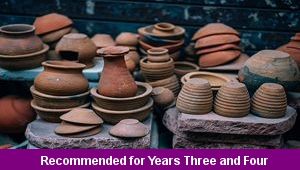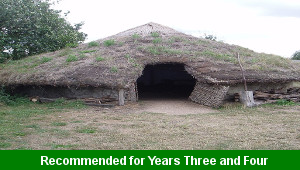Classroom Music

You can incorporate pieces of music into the daily management and organisation of the classroom to maintain a balanced and harmonised classroom that is reflective and settled. Select key pieces of music to signal to the class changes in the organisation or activity such as when to start tidying up or when to stop and listen to the teacher.
Classroom Jingles
Select some key pieces of music to act as signals to the children about a change of an activity in the classroom. For example, you can play a short series of notes on the xylophone when you want the whole class to stop working and listen to the teacher. The sequence of notes will avoid you having to raise your voice to catch the children’s attention. You can get the class to echo back the sequence of notes so that you know they have heard the jingle and are ready to listen. You can also select another short piece of music that can be played to indicate when it is time to line up for assembly or when it is time to go out to the playground. Try and select some distinctive pieces of music so that the children can learn to recognise the compositions before completing the required action in the classroom.
Working Atmosphere
One of the best ways of using music in the classroom is to select and play a musical composition to match a specific activity or task. This can help the children settle into the work and can produce a reflective and peaceful atmosphere in the classroom when the correct musical composition is selected. For example, if the children are painting a picture to match a particular season then you could play some orchestrations that have been composed to match a time of the year such as Vivaldi’s the Four Seasons. Similarly, if the children are working on a writing a science fiction story then you could play some of the tracks from Gustav Holst’s the Planets to provide inspiration and a reflective working classroom. Remember that some children might work more effectively without music being played so always provide a quiet area outside of the classroom to match their needs.
Classroom Tidy
You can also use pieces of music as a countdown to the completion of a particular activity. If your class are particularly messy and take ages over cleaning up after an activity then play a lively song to engage the class in tidying up the classroom. The children can earn a reward if they manage to clean the classroom and be sat down ready for the next task before the end of the piece of music. Try and choose songs that the children might be unfamiliar with so as to introduce them to different musical styles and genres.
Music Time
As part of the weekly classroom routine, set aside some classroom time to play different pieces of music for the class to appreciate and enjoy. Make sure that you play compositions from a range of musical genres and styles to develop the children’s understanding of music and their abilities in responding to a piece of music. The class can practise developing skills in relating their thoughts and ideas to pieces of music which can lead onto further discussions about issues and events in their lives. Responding to music provides the children with a good opportunity to develop their spoken language skills.
Musical Talents
In the same ways that you might celebrate sporting successes in the classroom then you should also devote some time for children to share their musical accomplishments and achievements. Allow children learning an instrument to play short compositions for the class to enjoy as part of weekly sharing time. This will provide the child with the instrument an opportunity to develop their confidence when playing to an audience as well as encourage other members of the class to develop their own musical talents. Use a rolling program throughout the term so that everyone gets a chance to display their musical talents and abilities to their classmates.
Class Rewards
You can use the opportunity to listen to music in the classroom as a reward for good behaviour and work. If the whole class have been listening attentively and working hard in a particular lesson then you can reward everyone by playing a piece of music for the class to listen to and enjoy as a wind down at the end of the school day. Also if some children have impressed you by their work attitude and achievements then they can be rewarded by allowing them to listen to some of their favourite pieces of music on a tablet using headphones as they work.
-

Viking Pots
Develop and refine a range of different art and design techniques when working with clay to make pots that represent Viking culture and traditions
-

Bronze Age
Research and illustrate how life in Britain developed and changed during the Bronze Age including the growth of communities and trade
-

Harbour Labels
Practise structuring and formatting different word processed documents to describe a range of ships and boats seen in a harbour
-

Islam
Explore and illustrate some of the different stories, beliefs and practices of the Islamic religion including special festivals and sacred texts
